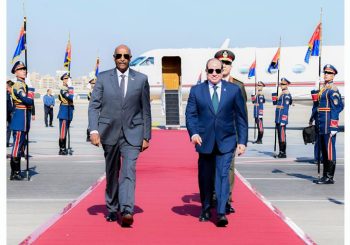On Sunday, 12 June, Noura Essam, a 23-year-old Egyptian woman, became the subject of a fervent nationwide search after her alleged kidnapping by her estranged father was shared across social media.
Two days later, on Tuesday, 14 June, Egypt’s Public Prosecution announced her safe return and the subsequent arrest of her father. The prosecution’s statement, shared through their official social media pages, explained the details of the incident.
In the two days between the newsbreak and her eventual return, a momentous social media campaign – ignited by writer and activist Sabah Khodir – brought light to the Noura’s situation and the father’s ill-treatment of his daughter.
The public prosecution’s statement also acknowledged the role social media played in directing their attention to the case.
A KIDNAPPING YEARS IN THE MAKING
Noura had been kidnapped since 4 June, according to the prosecution’s report. Held captive by her father, the case indicates that the situation had been escalating years before the crime occurred.
According to the statement, Noura’s stepgrandmother testified that Noura’s grandfather, who passed away prior to the kidnapping, had legal custody of her and her educational guardianship until his death.
“[Noura] testified that she resided with her grandfather and his wife since she was five months old, while her father resided in Japan,” the prosecution’s statement reads.
“She [later] refused her father’s request to continue her studies abroad, granting the grandfather legal custody [of Noura], and cut ties with her father up until the passing of her grandfather,” continues the statement.
A post by Khodir, which sparked the social media campaign leading to the father’s arrest, reports additional details of Noura’s estrangement from her father.
Upon her grandfather’s passing, Noura’s father forced himself back into her life to discuss an issue of inheritance, according to the prosecution’s testimonials. This led to disputes between the two once it was revealed that Noura’s grandfather left her a third of his estate in his will.
The disagreement culminated in Noura’s father entering the house, physically injuring her, and then kidnapping her; the incident was witnessed by two nearby security guards, according to the prosecution’s report.
Prominent lawyer and founder of Egypt’s Center for Women’s Rights, Nehad Abo El Komsan, also took a direct part in the campaign leading up to Noura’s return. In an Instagram post on 13 June, the day before news of Noura’s return, Abo El Komsan indicated that a case had been filed and sent to the public prosecution.
“The kidnapping of Noura is a crime, even if it’s by the father or her close relatives,” Abo El Komsan’s post reads.
Upon questioning, the public prosecution attributed the kidnapping to the father, identifying acts of coercion, assault, and theft (of her phone and other belongings). The father denied the accusations.
“Accordingly, the Public Prosecution ordered the detention of the accused and filed for a police investigation. It also directed the victim to forensic authorities to identify injuries, while investigations continue,” the public prosecution concludes.
Social media has since reacted with relief and jubilation, as users welcomed Noura back in comments, stories, and posts.
Noura, who is half-Korean, was also a subject of concern for the Korean Embassy in Egypt.
“The Embassy is thankful and assured for the timely address on Ms. Nora’s case by the Egyptian relevant authorities according to the request of the Embassy,” an official tweet reads.
Noura’s case is another example of Egypt’s growing utilization of social media and the virality of posts in bringing justice to victims. Egypt’s social media campaigns continue to cultivate conversations on social issues and crimes that impact its society, as seen in the 2020 Fairmont case or the Teleperformance suicide case.







Comments (2)
[…] dad has reportedly kidnapped his daughter after she inherited a fortune in her grandfather’s […]
[…] […]